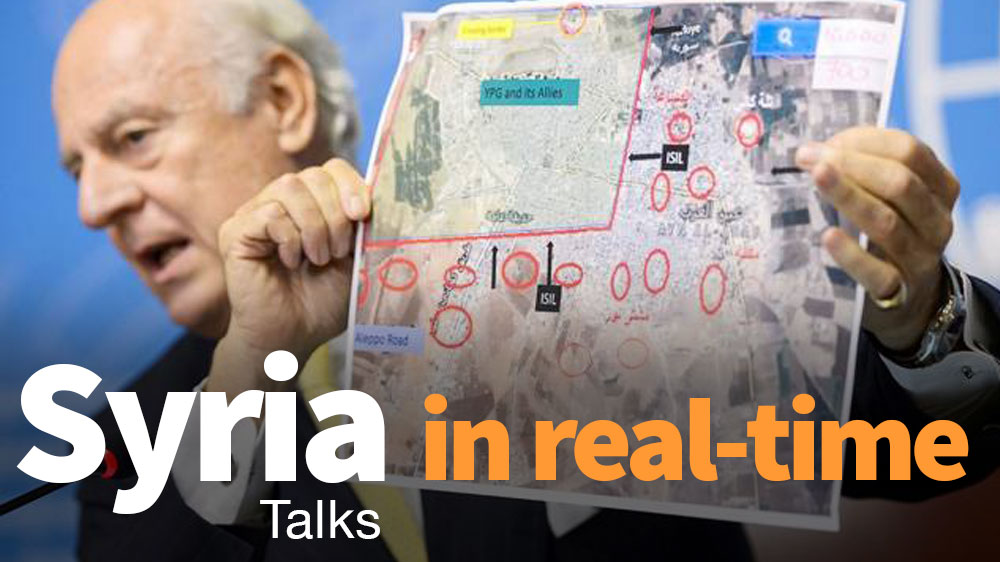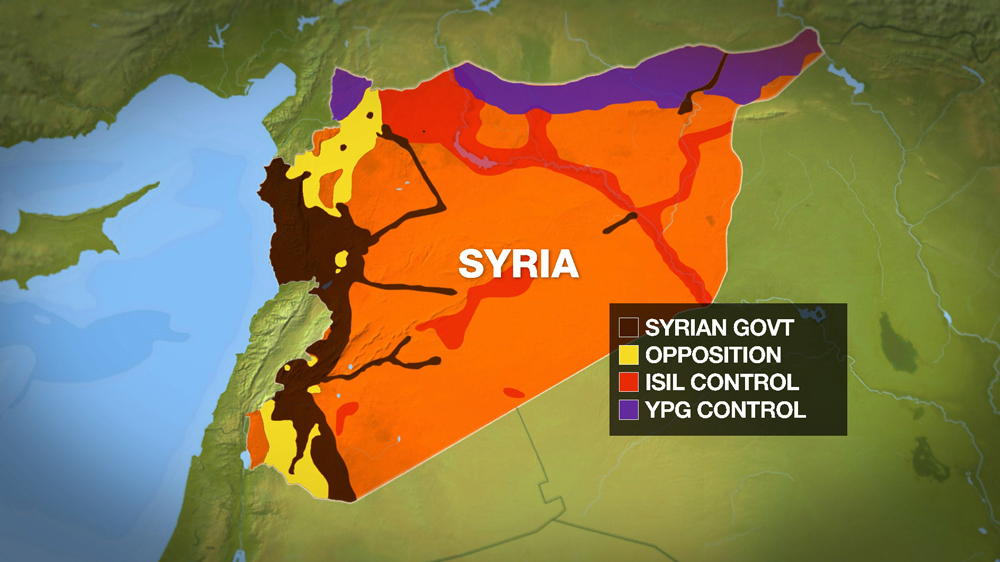Syria opposition delegation arrives for Geneva talks
Main opposition group arrives in Switzerland but wants humanitarian issues addressed before it will talk politics.

Syria’s main opposition bloc has arrived in Geneva to assess the intentions of the government in implementing humanitarian measures that could allow it to join political negotiations.
A 17-strong team of Higher Negotiation Committee (HNC) members, including three rebel leaders, arrived in Switzerland on Saturday, delegates told Al Jazeera.
Al Jazeera’s diplomatic editor James Bays, reporting from Geneva, said there was a slight delay in their arrival, as some members still had to receive a visa to Switzerland.
On Friday, HNC member Farah Atassi said the delegation was coming “not to negotiate” with the government yet, but to talk to UN officials after receiving reassurances from the organisation.
Atassi spoke at a Geneva hotel not far from the United Nations offices where UN Syria envoy Staffan de Mistura and Syria’s UN ambassador Bashar Jaafari were meeting.
![Syrian chief negotiator Bashar al-Jaafari (R) held talks with UN envoy De Mistura on Friday [Martial Trezzini/EPA]](/wp-content/uploads/2016/01/2a8f2d32598143e19857e3357ceb7293_18.jpeg)
“Yes, we will go to Geneva to be present but we will not attend the talks at all unless the regime fulfils our humanitarian demands, which specify stoppage to bombings and starvation of civilians in besieged areas as a condition,” Makhous said.
“Today we received guarantees that these issues will be addressed in addition to political transition of power. We will not accept anything else unless we see these demands met on the ground.”
‘Proxy talks’
 |
Mistura said that he believed he would be able to meet the HNC on Sunday.
Gennady Gatilov, the Russian deputy foreign minister, was quoted by Russian Interfax news agency as saying that no direct talks were expected in Geneva, only proxy talks.
Gatilov said there were no preconditions for the Syrian talks and that Moscow welcomed the decision by HNC opposition coordinator, Riad Hijab, to take part in talks in Geneva.
The talks are the first since two rounds of negotiations collapsed in 2014. Syria’s conflict has killed more than 250,000 people, displaced millions and sent hundreds of thousands fleeing as refugees to Europe.
The meetings are part of a process outlined in a UN resolution last month that envisages an 18-month timetable for a political transition, including the drafting of a new constitution and elections.
Live blog: Syria talks in real time
Disputes are ongoing over which opposition parties should attend, with the HNC bloc facing criticism from the Syrian government and Russia for including the Army of Islam group, which controls wide territory near the capital.
Earlier on Friday, UN spokesman Ahmad Fawzi reflected the sense of chaos and confusion surrounding the beginning of the negotiations when he told reporters at a briefing: “I don’t have a time, I don’t have the exact location, and I can’t tell you anything about the delegation.”
Air strikes and starvation
Meanwhile, there was no let-up in the fighting in Syria. On Saturday, at least 15 people were killed and dozens more injured in suspected Russian air strikes targeting rebel positions near the northern city of Aleppo.
In Syria’s west, opposition fighters said they had taken control of several checkpoints around the city of Hama, which lies in a region where control is divided between government and opposition fighters.

Further south, residents of the besieged Syrian town of Madaya continued to die of starvation and a lack of medical supplies, despite the delivery of aid earlier this month, according to a leading humanitarian agency.
Madaya residents starving to death despite aid delivery
Doctors without Borders said on Saturday that at least 16 people – close to one person per day – have died since three aid convoys entered the town, near the Lebanese border, 40km northwest of Damascus, on January 11.
The group said that an estimated 320 people in Madaya are suffering from malnutrition, 33 of whom are “are in danger of death if they do not receive prompt and effective treatment”.